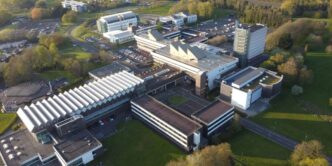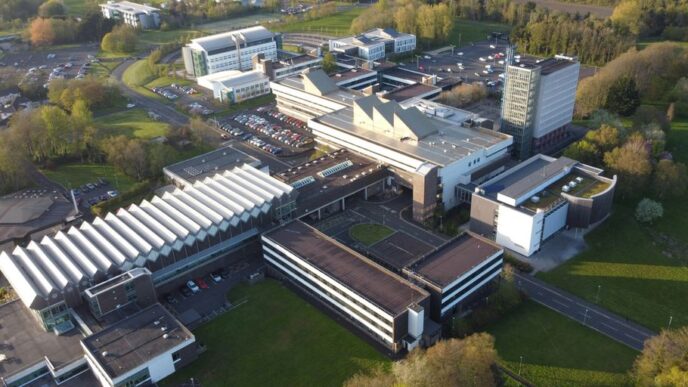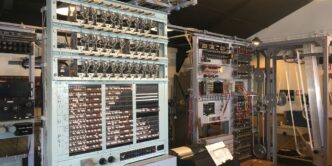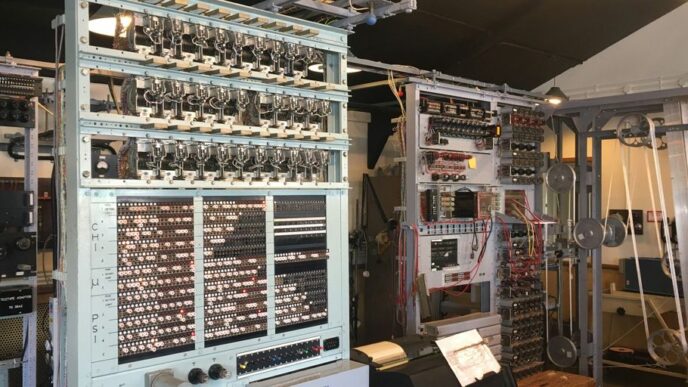In today’s rapidly evolving era of digital technology, the healthcare sector is undergoing a remarkable transformation fueled by the convergence of innovative technology and medical science. Among the groundbreaking advancements, machine learning has emerged as a pivotal force that has the potential to revolutionize the medical industry. Through its capacity to analyze vast amounts of data, identify patterns, and make precise predictions, machine learning is reshaping healthcare, empowering medical professionals to provide personalized and highly effective treatments.
Introduction to Machine Learning
Machine learning, a form of artificial intelligence that enables computers to learn from data and experiences, is at the forefront of the digital revolution currently sweeping the healthcare industry. Its transformative capabilities are already being witnessed across various sectors.
Healthcare stands out as one of the most promising fields for machine learning. The vast amounts of data generated by electronic health records, wearables, and connected devices present numerous opportunities for improving patient care and outcomes. Machine learning aids doctors in early disease identification, predicting patient response to treatments, and delivering personalized care tailored to individual needs.
While machine learning in healthcare is still in its early stages, the potential benefits are so significant that it is already causing a major impact. Here are a few examples of how machine learning is changing healthcare for the better:
Examples of Machine Learning Revolutionizing Healthcare
In the constantly evolving and intricate field of healthcare, technology has become essential for delivering quality care. Machine learning is one such technology that is beginning to transform healthcare. Here are three examples of how machine learning is revolutionizing the industry:
Personalized Treatment: Machine learning allows doctors to identify patterns in a patient’s illness and develop treatments tailored to the individual. This personalized approach leads to better outcomes and fewer side effects from treatment.
Accurate Diagnoses: Machine learning algorithms often outperform human experts in diagnosing diseases. For instance, a study found that a machine learning algorithm diagnosed skin cancer correctly 96% of the time, while human dermatologists achieved an accuracy rate of only 85%. As machine learning advances, diagnoses are expected to become even more accurate, enabling early detection of diseases.
Outcome Prediction: By analyzing data from past patients, machine learning algorithms can identify patterns associated with specific outcomes. This information helps predict outcomes for future patients with similar characteristics, aiding in treatment planning and decision-making.
Benefits of Using Machine Learning in Healthcare
With a growing global population, the demand for healthcare services is increasing, along with associated costs. This necessitates more efficient and cost-effective healthcare delivery methods. Machine learning has the potential to revolutionize healthcare in this context.
Machine learning, a type of artificial intelligence that learns from data and improves its performance over time, can develop predictive models to identify patterns and trends. This information supports better decision-making regarding patient care, treatment options, and disease prevention.
The benefits of using machine learning in healthcare are numerous. It equips doctors and medical professionals with accurate, up-to-date information, enabling better decisions about patient care. Machine learning also improves the efficiency and accuracy of tasks such as diagnosis and treatment planning, thereby reducing healthcare costs. Additionally, personalized medicine based on machine learning can enhance patient outcomes by tailoring treatments to individual needs.
While the use of machine learning in healthcare is still in its early stages, the potential benefits are already evident. As this technology continues to advance, further positive impacts on the healthcare industry are expected.
Challenges and Risks of Implementing Machine Learning in Healthcare
Implementing machine learning in healthcare poses several challenges and risks. One challenge is the difficulty of interpreting machine learning algorithms, making it hard to understand why a specific decision was made. This can lead to errors in diagnosis or treatment. Additionally, machine learning algorithms require large amounts of data to be effective, and obtaining healthcare data can be challenging. Another risk is the possibility of machine learning being used to make decisions about patient care without the input of human doctors, potentially resulting in suboptimal care. Bias and discrimination are also risks associated with machine learning algorithms in healthcare.
Success Stories
Machine learning is undeniably revolutionizing healthcare. Hospitals and clinics are leveraging machine learning to diagnose and treat patients effectively, create personalized treatment plans, and predict epidemics. Here are a few success stories showcasing how machine learning is transforming the medical industry:
Predicting Mortality: Researchers at Stanford University developed an algorithm using machine learning that predicts patient mortality with up to 95% accuracy. Trained on data from over 200,000 patients in the US and UK, this algorithm outperformed existing methods of mortality prediction.
Breast Cancer Detection: Google’s researchers created a machine learning algorithm that detects breast cancer with high accuracy. Trained on over 30,000 mammograms from the US and UK, the algorithm surpassed radiologists in cancer detection.
Drug Development: Pharmaceutical companies like Pfizer and Novartis are utilizing machine learning to screen for potential drugs and develop innovative treatments such as CAR-T cell therapy for cancer.
Applications for Machine Learning in Healthcare
The applications of machine learning in healthcare are vast and diverse. Machine learning can enhance diagnostic accuracy, treatment effectiveness, and care delivery efficiency. It also supports research efforts and facilitates personalized medicine. Here are a few specific examples:
Accurate Diagnostic Tools: Machine learning can develop algorithms for identifying diseases more accurately based on symptoms, lab results, and other data, reducing misdiagnoses and missed diagnoses.
Improved Treatment Outcomes: Machine learning models can predict patient responses to different treatments, enabling clinicians to choose the most effective option for each individual, leading to better outcomes.
Enhanced Care Delivery: Machine learning algorithms can improve care coordination and management by identifying patients at risk of readmission or adverse events. This information helps target interventions and enhance care quality.
Support for Population Health: Machine learning can analyze population health data, identify patterns, and design targeted public health interventions to improve overall population health.
Conclusion
Machine learning continues to evolve and promises to revolutionize the healthcare industry in unimaginable ways. From accurate and rapid diagnoses to automated administrative processes for improved efficiency and accuracy, the possibilities are endless.











